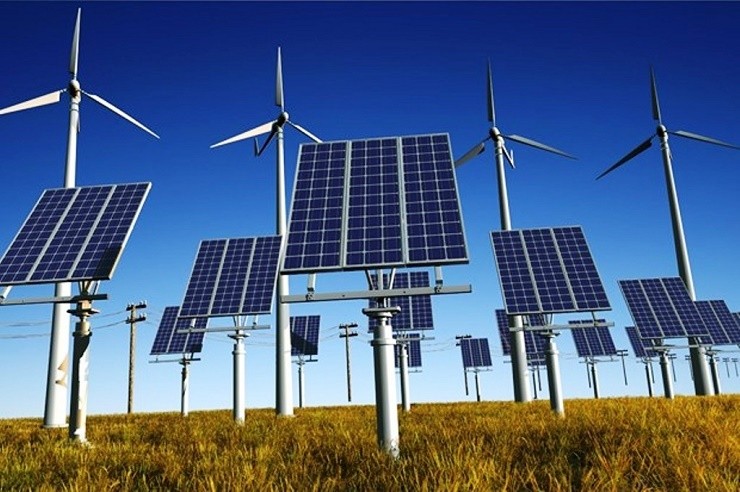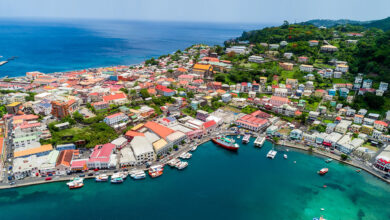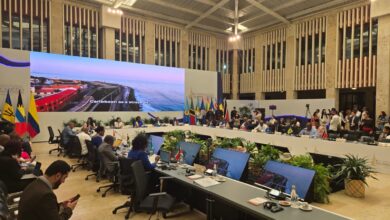NASSAU, Bahamas, Tuesday April 12, 2016 – Japan and the Inter-American Development Bank (IDB) are partnering to invest US$3 billion in Latin America and the Caribbean to support renewable energy and energy efficiency projects, as well as quality infrastructure projects related to energy savings.
The agreement between the IDB and the Japan International Cooperation Agency (JICA) expands on the Co-financing for Renewable Energy and Energy Efficiency (CORE) programme, which was created in 2012 to support energy investments to mitigate climate change impacts in Central America and the Caribbean.
It will increase the target amount of JICA’s highly concessional loan window from US$1 billion to US$3 billion, and will extend the term of the programme until April 2021. This will also broaden CORE’s geographical reach, enabling partners to fund projects in all low-and middle- income IDB borrowing member countries, as well as more vulnerable Caribbean economies not previously covered by the programme.
An innovative aspect of this arrangement is the Japanese government’s creation of the Japan Quality Infrastructure Initiative (JQI), the IDB’s first built-in grant mechanism for a co-financing arrangement. Additionally, its prioritization of infrastructure furthers the Japanese government’s aim to promote quality infrastructure in Latin America and the Caribbean as a way of improving energy efficiency, safety, and sustainability.
The agreement was signed by IDB President Luis Alberto Moreno and JICA’s Vice President Hidetoshi Irigaki during the IDB’s just ended 2016 Annual Meeting in Nassau, Bahamas.
“Japan has been a valuable partner as we have worked hard to put sustainability at the front and center of our operations,” said IDB President Luis Alberto Moreno. “Latin America and the Caribbean have enormous energy and infrastructure needs and we believe the programme will help ensure that these investments have an even greater positive impact.”
“We believe the expanded programme can serve as a vehicle for accelerating the establishment of quality infrastructure in Latin America and the Caribbean, generating positive long-term impacts of economic, environmental, and social importance,” said Manabu Sakai, the State Minister of Finance of Japan.
“Its expansion will not only broaden its geographical reach but bolster the region´s infrastructure efforts by reinforcing the importance of the sector. Japan is very much looking forward to continuing the transfer of its technology and experience to the region as a means of advancing sustainable development.”
Irigaki said JICA would continue to work with the IDB on challenges in Latin America and the Caribbean, mainly in the fields of renewable energy and energy efficiency, now under the Japanese government’s initiative to globally promote quality infrastructure.
Established in 2012 with an initial target amount of US$300 million and later expanded to US$1 billion in 2014, the CORE mechanism has proven an effective approach to promoting renewable energy and energy efficiency in Central America and the Caribbean. To date, the programme has channeled approximately US$800 million of JICA’s highly concessional resources, which are leveraged by IDB loans, to the LAC region.
The first co-financing loans under CORE have been approved by the partners to fund renewable energy and energy efficiency programmes in Nicaragua and Honduras, as well as efforts to develop geothermal energy in Costa Rica. Co-financing programmes for the Eastern Caribbean for development of geothermal energy are currently in the advanced stage of preparation.
This financing will move the LAC region forward in its efforts to meet the goals set by COP21 as well as by the United Nations’ Sustainable Energy for All (SE4All) initiative which aims to double energy efficiency and renewable energy use in the region by 2030.
Joining the IDB as its first Asian member country in 1976, Japan has contributed over US$5 billion to the IDB’s financial resources and, more recently, an additional US$3.5 billion to the Bank’s capital increase.






